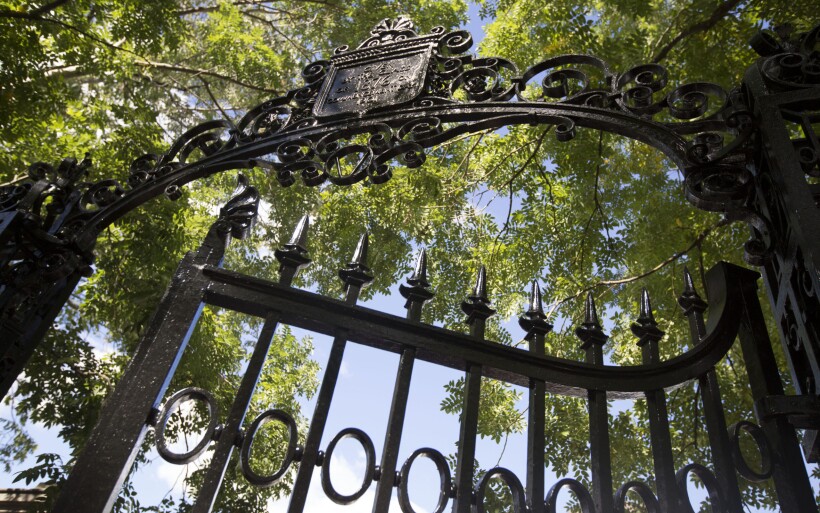Harvard Professor Found Guilty in High-Profile China Initiative Case

A gate on the Harvard campus.
(Kris Snibbe / Harvard University)
After deliberating for less than three hours, a jury convicted
During the one-week trial,
While Lieber’s lawyers argued it could not be proven he was lying on that point, the prosecutors presented a contract he signed making him a participant in the program and pointed to his admission of not being transparent with officials from federal science agencies.
Lieber’s case represents the first time a jury has rendered a guilty verdict against an academic in a case brought through the Justice Department’s China Initiative and follows the acquittal
The initiative has come under fire from advocacy groups for focusing on crimes related to disclosure of funding rather than more serious charges of espionage and theft, as well as for predominantly affecting scientists of Asian descent.
Despite Lieber’s conviction, some observers believe


